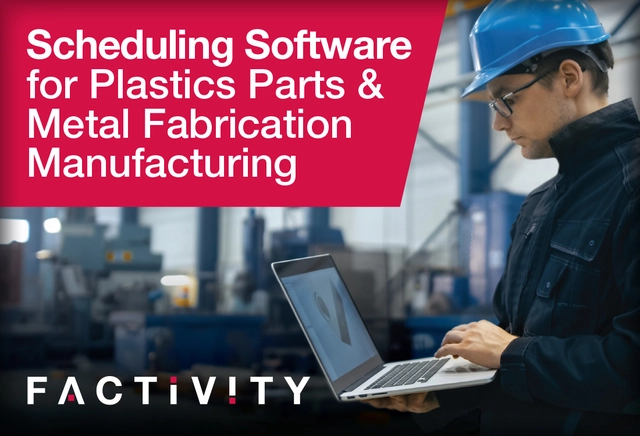“One major differentiator between Advanced Scheduling Software and using your current ERP and/or spreadsheet based scheduling system is the ability to quickly and easily provide realistic ship dates to customers…”
Providing timely delivery to customers does not have to be a complex process. Accurate and optimized production scheduling in plastic parts and metal fabrication factories is a requirement for ensuring the fastest possible customer delivery. As outlined in our article about what manufacturers can learn from Amazon, an APS Advanced Planning and Scheduling with or without a Manufacturing Execution System (MES) included is mandatory for customer driven manufacturing and/or job shop companies looking for improved on-time delivery performance. Here are a few reasons why your operations will run better and you will serve your customers more effectively and efficiently with an APS system:
Optimized Sequencing
Changes on the plant floor caused by last minute changes in customer requirements and unexpected machine down occurrences can be evaluated and readjusted in minutes.
The need to sequence jobs in the most efficient order to minimize setup time complicates production scheduling. APS systems can assign attributes to each item you manufacture. These attributes can reflect common process characteristics that can be grouped together to enable sequencing jobs in an optimized fashion by minimizing downtime which can improve on time delivery.
When the colors of the parts change, for example, it will sequence jobs from light to dark, known as campaign sequencing, to eliminate creating bad parts while avoiding a complete cleanup between jobs. Additional characteristics might include similar raw materials grouped together to minimized material handling between jobs.
But grouping work together to improve shop floor efficiency is all-well-and-good if customer on-time delivery does not suffer. That is where optimization along with scenario functionality goes beyond simple grouping. One major differentiator between using an ERP and/or spreadsheet based scheduling system is the ability to run multiple scenarios of the same set of jobs to determine the best choice and then publish this line-up to each piece of equipment on the floor electronically via a paperless MES.
Family Molds and Parallel Work Scheduling
Many molded plastic parts use family molds—molds that include several parts that will ultimately be used as a set. An APS system can schedule these jobs effectively since it is aware that the mold is for the full set. An MES system makes it easy to report status of a group of related parts with a single transaction using a grouped/nested job function, saving you time and improving the efficiency of your shop floor team.
An APS system also allows you to schedule the same job on more than one machine (known as splitting). This can be a requirement for metal fabricators if you have a rush delivery or idle time on a particular class of presses. In addition, the APS system knows whether jobs require an operator to be available during the entire run or whether the job can run unattended. These are just a few of the critical capacity constraints of work scheduling, but without an APS you will have to make manual “guesstimates” or risk incorrect schedules that increase your cost. Knowing the exact amount of labor required on a weekend shift to satisfy peaks in customer demand, for one example, can save thousands of labor dollars.
Scheduling Secondary Operations
Many plastic parts and metal stamping operations require additional machining after they are released from the mold or die. These secondary operations can add complications for someone trying to provide an efficient schedule. It can be difficult—if not impossible–to optimize the factory schedule with the simplistic scheduling available in most ERP and/or highly customized spreadsheets.
In certain job shops, certain parts must be created on different presses and then assembled down the line. It’s vital to ensure that these parts are grouped together in time on the schedule so they are ready at the same time for assembly, painting and other secondary operations. If one part is manufactured too early or too late with respect to the others then unneeded WIP inventory sits idle, subject to damage or loss.
And finally, if your production scheduling and tracking process is based on paper output and/or manual updating, then by definition it is not going to be timely. Modern APS and MES solutions, on the other hand, should be a paperless solution designed to optimize work schedules and shop floor visibility.
The benefits of APS are real, and they affect every area of manufacturing operations. It can improve customer service, reduce costs, and improve asset utilization. No manufacturing company should attempt to compete in today’s complex and competitive business environment without an effective APS solution.
Take this short quiz to see how you measure-up with factory floor performance…
Performance Assessment takes less than a minute!
Contact us for more information or obtain a quick free assessment and quote.
1-800-369-6377 or click here for our Website.
